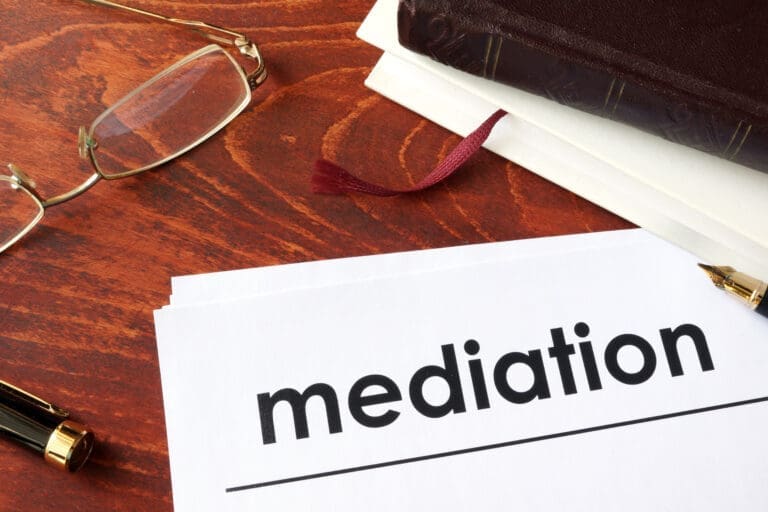
Bad debts are a common financial challenge faced by individuals and businesses alike. When debts go unpaid, it can lead to legal actions that intersect with both civil and criminal law. Understanding the legal implications of bad debts is crucial in today’s complex financial landscape. In this article, we will delve into the intricacies of bad debts in civil and criminal law, explore the consequences for debtors and creditors, and discuss potential reforms in debt collection practices.
The Legal Landscape of Bad Debts
In the realm of civil law, bad debts often result in debt collection lawsuits. Creditors, whether they are individuals or businesses, frequently turn to debt collectors or collection agencies to pursue unpaid debts. These collectors flood small-claims and other state courts with lawsuits seeking repayment. It’s worth noting that more than 6,000 debt collection firms operate in the United States, collectively collecting billions of dollars annually.
Debt Collection Lawsuits: An Overview
Debt collection lawsuits have become a significant portion of many state court dockets. In fact, in some state courts, debt-purchasers file more suits than any other type of plaintiff. Debt collection lawyers can file hundreds of suits a day, often with limited evidence that the alleged debt is genuinely owed. This lack of legal representation for the defendants can stack the odds against them.
Challenges for Debtors
Debtors facing collection lawsuits often find themselves at a disadvantage. The overwhelming majority of them do not have legal representation, and small claims courts, where many of these cases are heard, provide limited due process protections. As a result, over 95 percent of debt collection suits end in favor of the collector, mainly because alleged debtors do not mount a defense.
Warrants, Arrests, and Coercion
The legal system’s role in debt collection doesn’t end with judgments. Collection companies have various methods to collect the money owed. They can seek to garnish a debtor’s paycheck, seize personal property, or record a lien against their property. Additionally, creditors can request the court to issue a civil warrant for the debtor’s arrest if they fail to appear in court for a judgment debtor examination.
Prosecutors’ Involvement
In some cases, district attorneys’ offices get involved, particularly in situations involving bad or bounced checks. These offices may partner with private collection companies to collect on bounced check claims. These companies may even send letters on the district attorney’s letterhead, threatening criminal prosecution, jail time, and fines.
The Impact on Vulnerable Individuals
Many individuals facing arrest or threats of arrest due to unpaid debts are among the most vulnerable in society. They often live paycheck to paycheck, and any legal action against them can have severe consequences. These arrests can lead to lost wages, lost jobs, and significant psychological distress. Moreover, even arrest warrants that don’t result in jail time can harm individuals’ future prospects, including employment and housing opportunities.
Calls for Reform
The coercive tactics associated with debt collection have raised concerns about due process, equal protection, and human rights. Advocates and organizations have called for reforms to protect consumers from intimidation and threats related to debt collection. These reforms encompass various aspects, from prohibiting courts from issuing arrest warrants in debt collection proceedings to providing more robust due process protections for consumers.
The Role of Consumer Protection Laws
In response to the challenges posed by aggressive debt collection practices, consumer protection laws have been enacted to safeguard the rights of debtors. These laws vary by jurisdiction but generally aim to ensure fair treatment and prohibit harassment by debt collectors. Familiarizing oneself with these laws is essential for individuals navigating the complexities of bad debts.
La importancia de la representación legal
As we delve deeper into the legal implications of bad debts, it becomes evident that having legal representation can significantly impact the outcome of debt collection lawsuits. Legal professionals experienced in debt collection cases can provide invaluable guidance to debtors, ensuring that their rights are protected and that they receive fair treatment under the law.
Debt Consolidation and Bankruptcy
For individuals overwhelmed by bad debts, debt consolidation and bankruptcy are potential solutions. Debt consolidation involves combining multiple debts into a single manageable payment, often with reduced interest rates. On the other hand, bankruptcy provides a legal framework for individuals to eliminate or restructure their debts. However, both options come with their own legal considerations and consequences, making it essential to seek legal advice when contemplating these paths.
Public Awareness and Education
In addressing the challenges of bad debts, public awareness and education play a crucial role. Individuals should be informed about their rights, legal options, and available resources. Non-profit organizations and government agencies offer educational materials and resources to empower consumers to make informed decisions when dealing with bad debts.
Conclusion: Navigating the Complexities of Bad Debts
In conclusion, the legal implications of bad debts in civil and criminal law are multifaceted and impact both debtors and creditors. Debt collection lawsuits, coercive practices, and the involvement of prosecutors have prompted calls for reform in debt collection practices. Understanding this legal landscape is essential for both debtors and creditors, and seeking legal counsel can make a significant difference in the outcome of debt collection cases.
As individuals and businesses continue to grapple with the challenges of bad debts, a balance must be struck between debt recovery and protecting the rights and well-being of those facing financial difficulties. By staying informed, advocating for reforms, and seeking legal guidance when necessary, individuals can navigate the complexities of bad debts with greater confidence and fairness.
Divulgación: Generative AI creó el artículo








